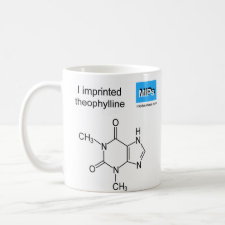
Authors: Khorrami AR, Rashidpur A
Article Title: Design of a new cartridge for selective solid phase extraction using molecularly imprinted polymers: Selective extraction of theophylline from human serum samples.
Publication date: 2009
Journal: Biosensors and Bioelectronics
Volume: 25
Issue: (3)
Page numbers: 647-651.
DOI: 10.1016/j.bios.2008.11.033
Abstract: This paper describes design of a new cartridge for selective solid phase extraction (SPE) using molecularly imprinted polymers (MIPs). The apparatus which is termed solvent extraction-MISPE (SE-MISPE) cartridge, consisted of a modified conventional micro test tube and has been developed to perform simultaneous forward-extraction of analyte from aqueous sample solution to an organic phase and back-extraction to MIP solid phase. In order to evaluate the performance of the proposed method, extraction of theophylline (THP) from human serum sample was investigated. An appropriate amount of THP-imprinted polymer was placed in the bottom of the micro tube and an organic solvent pipetted onto it and left to swell the polymer completely. A polyethylene frit to secure MIP particles was positioned by two Teflon rings such that it was fixed below the level of the organic layer. Then, aqueous sample solution containing THP was layered over the organic phase and the lid was closed. After completion of extraction, the organic and aqueous phases were removed and the adsorbed analyte was desorbed using a polar organic solvent. In order to reach the highest recovery, the experimental parameters such as the type of organic solvent, pH and ionic strength of aqueous phase, organic to aqueous volume ratio, time of extraction, type and amount of desorbent solvent were optimized. Under the experimental conditions, a plot of HPLC peak areas vs. initial concentrations of THP in the concentration interval of 0.5-30 μg ml-1 showed a good linearity (r = 0.9974). The limit of detection (LOD) and limit of quantification (LOQ) based on three and ten times of the noise of HPLC profile were 0.09 and 0.3 μg ml-1, respectively. The relative standard deviation (RSD) of the proposed method for the extraction and determination of 5 μg THP from 200 μl standard sample solution for 3 replicate measurements was 3.5%. The results showed that by means of the proposed cartridge, THP could significantly separate from the other structurally related compounds such as theobromine (THB) and caffeine (CAF). The added THP could be quantitatively recovered (79-83%) from the serum samples by the proposed procedure, being thus a guarantee of the accuracy of the SE-MISPE procedure. In addition, the loss of capability of the SE-MISPE cartridge was not considerably observed after 10 times loading and elution cycles
Template and target information: theophylline, THP
Author keywords: molecularly imprinted polymer, solid phase extraction, theophylline, human serum



Join the Society for Molecular Imprinting

New items RSS feed
Sign-up for e-mail updates:
Choose between receiving an occasional newsletter or more frequent e-mail alerts.
Click here to go to the sign-up page.
Is your name elemental or peptidic? Enter your name and find out by clicking either of the buttons below!
Other products you may like:
 MIPdatabase
MIPdatabase









